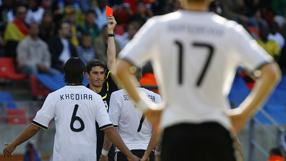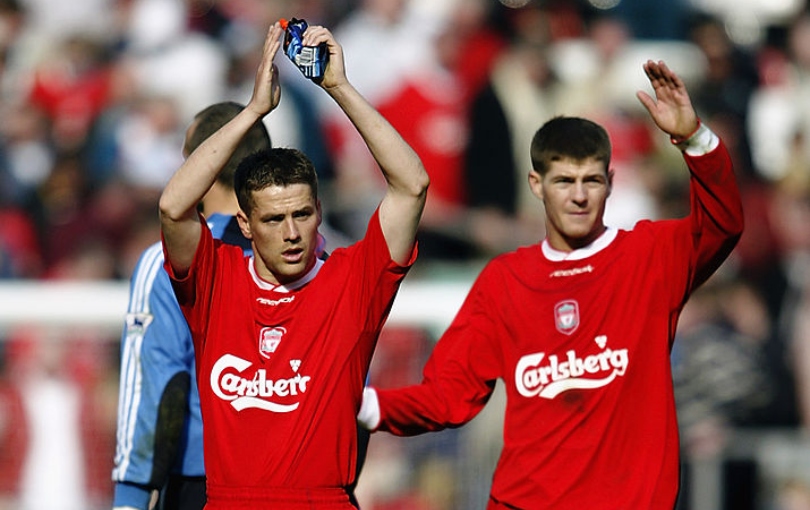New Germany have old eastern frailties
JOHANNESBURG - For all the new faces and commitment to fast-moving attack, a 1-0 defeat by Serbia on Friday showed Germany have still not found a way to deal with technically gifted, streetwise sides from eastern Europe.

If a 4-0 win over Australia showed off a young team's virtues in the best light, their second Group D game proved the revolution begun by Juergen Klinsmann and continued with such zeal by his old assistant Joachim Low has not come to fruition.
Germany came back from the double blow of a red card for Miroslav Klose in the 37th minute and a beautifully worked goal finished by Milan Jovanovic a minute later to play their best football with 10 men.
Lukas Podolski should have equalised but his weak penalty was easily saved and they now face a scramble to get out of the group, as even a win against Ghana could result in a tie at the top with three teams on six points.
While that situation will be Low's main concern, there may be a nagging worry that a pattern is emerging in tournaments, with Germany repeatedly exposed by organised sides that set out to deprive them of space in midfield and are fit enough and skilful enough to hit them on the break.
FAMILIAR STORY
Ever since they suffered a shock 3-0 defeat by Croatia in the quarter-finals of the 1998 World Cup, with Klinsmann in the team, they have struggled to beat teams from the east.
They began Euro 2000 with a 1-1 draw with Romania and never recovered, going out in the first round.
Get FourFourTwo Newsletter
The best features, fun and footballing quizzes, straight to your inbox every week.
At the 2002 World Cup they avoided sides from eastern Europe altogether and reached the final but at Euro 2004 it was back to the old story, as a goalless draw with Latvia and a 2-1 defeat by a second-string Czech Republic side sealed their fate.
They managed to beat Poland in their second group game at the 2006 World Cup, but that was on home soil and it needed a last-gasp goal to give them a 1-0 win from a bruising encounter.
Two years later, they found a limited Poland team much more to their liking, winning 2-0 in their opening match at Euro 2008, but Croatia's supremely gifted midfielders proved a different proposition with Low's side slumping to a 2-1 defeat.
Low will take solace from the fact that they recovered from that defeat to reach the final, where they were beaten by Spain.
It will take the same strength of character when they face Ghana at Soccer City on June 23.
With Ballack injured, Klose facing suspension and Torsten Frings discarded, Low will have no choice but to keep faith with his young team of eager, inexperienced players.
It is the sort of challenge three-times winners Germany have always relished at World Cups but Low would do well to be wary of this African opponent for one chilling reason.
